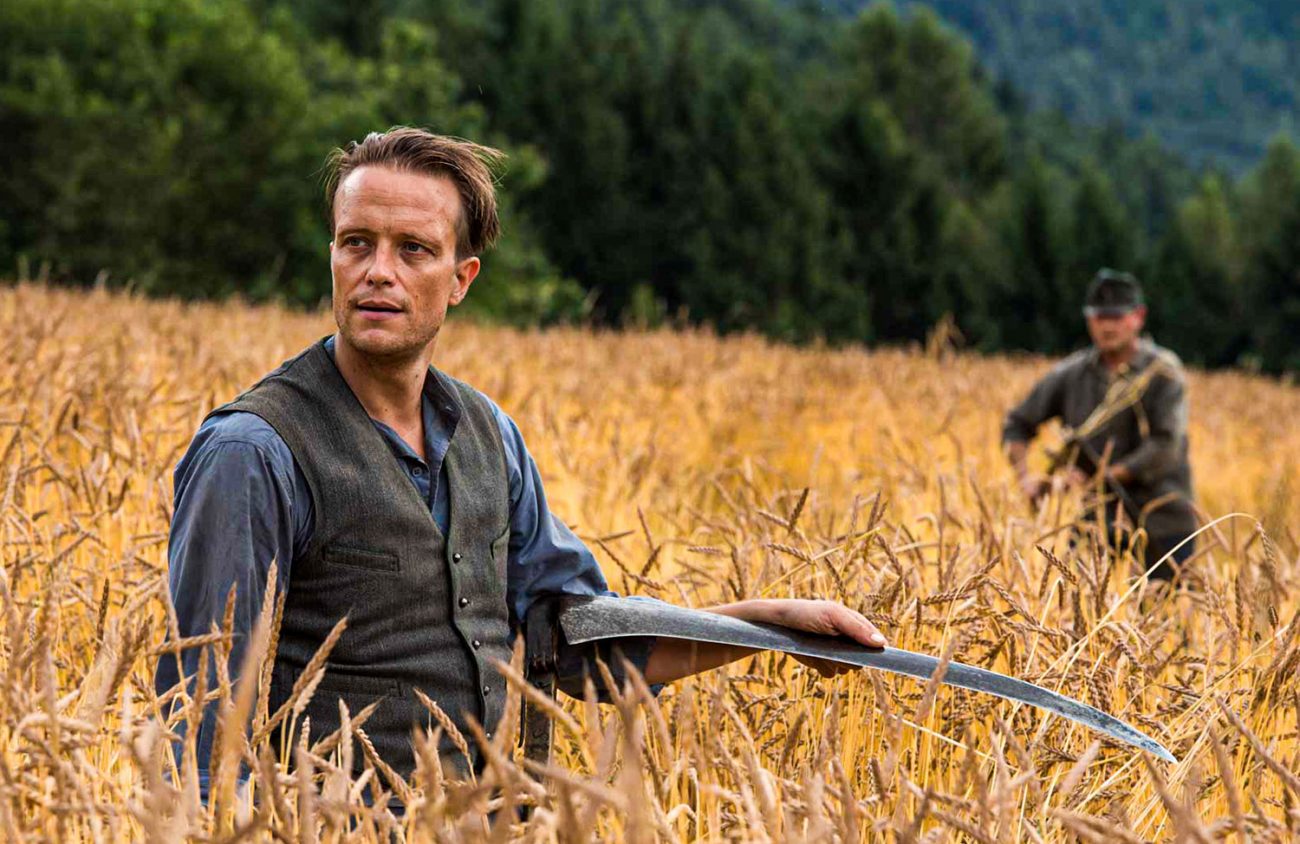Every time I watch a movie by the great American director Terrence Malick, I come to the same conclusion: There is every other filmmaker, and then there’s Terrence Malick. The man is operating on another level altogether, scraping the vault of the stratosphere with technical genius and unrivaled audacity. He seems, at times, to be the only director who truly understands everything a movie can and should be. I stand in awe of his art.
Malick’s 2011 film Tree of Life is the quintessence of his vision, and one of the greatest films of all time. A visual feast that is as mesmerizing as it is confrontational, the film dares to explain it all — life, death, grief, existence, the nature of being itself — and it does so by telescoping inward and outward on the most intimate and humid of scenes, the turmoil of a single family coping with the death of a child in Waco, Texas, in the 1950s.
Malick’s new film, A Hidden Life, is no less risky and grand. It tells the story of a humble Austrian farmer, Franz (August Diehl), who, under threat of execution, refuses to swear an oath of loyalty to Hitler. Stunningly gorgeous scenes of idyllic village life are posed against a growing Nazi hysteria, as Franz, his wife, Fani (Valerie Pachner, who is wonderful), and their young daughters are condemned, harassed and alienated by their fellow villagers.
Evil is loud if nothing else, and certainly there are brutal moments here, but — this being Malick — the juggernaut of history plays out as a form of cosmic meditation, something infinitesimally small and yet enormous as eternity. Franz, the conscientious objector, is faced with a timeless question: How can he consent to something he knows is wrong, regardless of the consequences? Are there fates worse than death?
It would be impossible to ignore the theological implications of Malick’s vision, which suggests at every turn that the battle between good and evil is a matter of conscience alone — an individual choice that, in the end, may have zero impact on the course of history or the outcome of events. This is not a distinctly religious issue, as Malick exemplifies in damning portraits of the clergy, which capitulates to Hitler in an attempt to salvage the church’s standing in the Reich.
Rather, A Hidden Life is a harrowing, beautiful and, despite the darkness surrounding the proceedings, oddly uplifting portrait of the true price of faith, fashioned as light versus darkness. Franz’s choice will cost him and his family everything, if by everything one means surviving while compromising one’s deepest beliefs. After all, we all have our crosses to bear, but we’ll be damned if we’re willing to be nailed to them when we get to the top of the hill.
None of this captures the scope and magnificence of what Malick has accomplished here. Every character and every moment in A Hidden Life reflects degrees of Franz’s choice, with a level of generosity that transcends judgment and condemnation. There are no “bad guys” in this movie; rather, there are shades and shadows that grow and recede according to each character’s failure to confront the truth of Franz’s resistance.
With trademark grandeur and exquisite technical finesse, Malick has written yet another chapter in a growing body of work that seems to batter at and transcend the limitations of cinema. A Hidden Life is a breathlessly moving and sumptuous work of art, and the questions it asks about the nature of evil are timely indeed, and always will be. (Bijou Art Cinemas)
